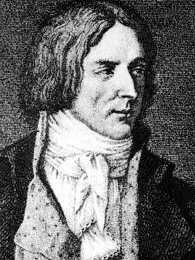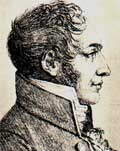Related Research Articles

Jean-Lambert Tallien was a French politician of the revolutionary period. Though initially an active agent of the Reign of Terror, he eventually clashed with its leader, Maximilien Robespierre, and is best known as one of the key figures of the Thermidorian Reaction that led to the fall of Robespierre and the end of the Terror.

Jean-Baptiste Robert Lindet was a French politician of the Revolutionary period. His brother, Robert Thomas Lindet, became a constitutional bishop and member of the National Convention. Although his role may not have been spectacular, Jean-Baptiste Lindet came to be the embodiment of the growing middle class that came to dominate French politics during the Revolution.
This glossary of the French Revolution generally does not explicate names of individual people or their political associations; those can be found in List of people associated with the French Revolution.

Jean Bon Saint-André was a French politician of the Revolutionary era.

Jean Marie Claude Alexandre Goujon was a politician of the French Revolution. He was a member of the National Convention from 1793 to 1795, was sentenced to death after the Revolt of 1 Prairial Year III and committed suicide before he could be executed.

Antoine Christophe Saliceti was a French politician and diplomat of the Revolution and First Empire.

Jean-Baptiste Treilhard was an important French statesman of the revolutionary period. He passed through the troubled times of the Republic and Empire with great political savvy, playing a decisive role at important times.

The Socialists and affiliated group is a parliamentary group in the National Assembly of France that includes representatives of the Socialist Party (PS).

Maximilien François Marie Isidore de Robespierre was a French lawyer and statesman, widely recognized as one of the most influential and controversial figures of the French Revolution. His vision was centered on forging a unified and indivisible France, establishing equality under the law and eradicating privileges.

Jacques-Alexis Thuriot, known as Thuriot de la Rosière, and later as chevalier Thuriot de la Rosière, chevalier de l'Empire was an important French statesman of the French Revolution, and a minor figure under the French Empire of Napoleon Bonaparte.
Bernard Thomas Tréhouart de Beaulieu was a French businessman, major of Saint-Malo, deputy at the National Convention, and Navy officer.
François Henri Eugène Daugier was a French naval officer and politician.
Jean-Baptiste-Charles-Mirampal Matthieu was a French politician and Deputy to the National Convention.
Claude-Alexandre Ysabeau was born in Gien on 14 July 1754 and died in Paris on 18 March 1831.

Jacques Antoine Rabaut known as Rabaut-Pommier,, was a politician of the French revolutionary era. He was a member of the National Convention (1792–95) and of the Council of Ancients (1795–1801). In 1816 he was exiled for regicide under the Bourbon Restoration, though he later benefited from an amnesty. Deeply committed to medicine, he was an ardent advocate of vaccination.

Jean Bertrand Féraud, was a French politician of the French revolutionary era.
Denis Toussaint Lesage was a deputy who represented Eure-et-Loir in the French National Convention and Seine in the Council of Five Hundred.
François Sébastien Christophe Delaporte,, , was a politician at the time of the French Revolution.

Joseph-Étienne Richard, was a French politician.
Laurent Lecointre was a French politician, born at Versailles on 1 February 1742, and died at Guignes, Seine-et-Marne on 4 August 1805. He is also known under the name of "Lecointre de Versailles".
References
- ↑ Jean Pascal, Les députés bretons de 1789 à 1983, PUF, 1983 p.74
- ↑ Claude-Augustin Tercier, Xavier Du Boisrouvray, Mémoires d'un chouan: 1792-1802, Tallandier, 1989, p.416
- ↑ Henri Lambert,Pour Dieu et le roi, ou, L'inutile sacrifice: Quiberon, juin-juillet 1795, Marque-Maillard, 1987 p.199.
- ↑ www.assemblee-nationale.fr(PDF) http://www.assemblee-nationale.fr/histoire/biographies/1789-1889/Tome_1/BIXIO_BLANCSUBE.PDF. Archived (PDF) from the original on 2016-03-03. Retrieved 2017-04-15.
{{cite web}}: Missing or empty|title=(help)[ title missing ] - ↑ Reimpression de L'ancien Moniteur depuis la reunion des Etats-generaux jusqu'au consulat (mai 1789-novembre 1799), Au Bureau Central, Paris, 1840 vol.15 p.222
- ↑ www.assemblee-nationale.fr(PDF) http://www.assemblee-nationale.fr/histoire/biographies/1789-1889/Tome_1/BIXIO_BLANCSUBE.PDF. Archived (PDF) from the original on 2016-03-03. Retrieved 2017-04-15.
{{cite web}}: Missing or empty|title=(help)[ title missing ] - ↑ Louis-Gabriel Michaud, Biographie des hommes vivants, Paris, 1816, vol.1 p.356
- ↑ Bernard Gainot, Dictionnaire des membres du Comité de salut public: dictionnaire analytique biographique et comparé des 62 membres du Comité de salut public, Tallandier, 1990 p.88.